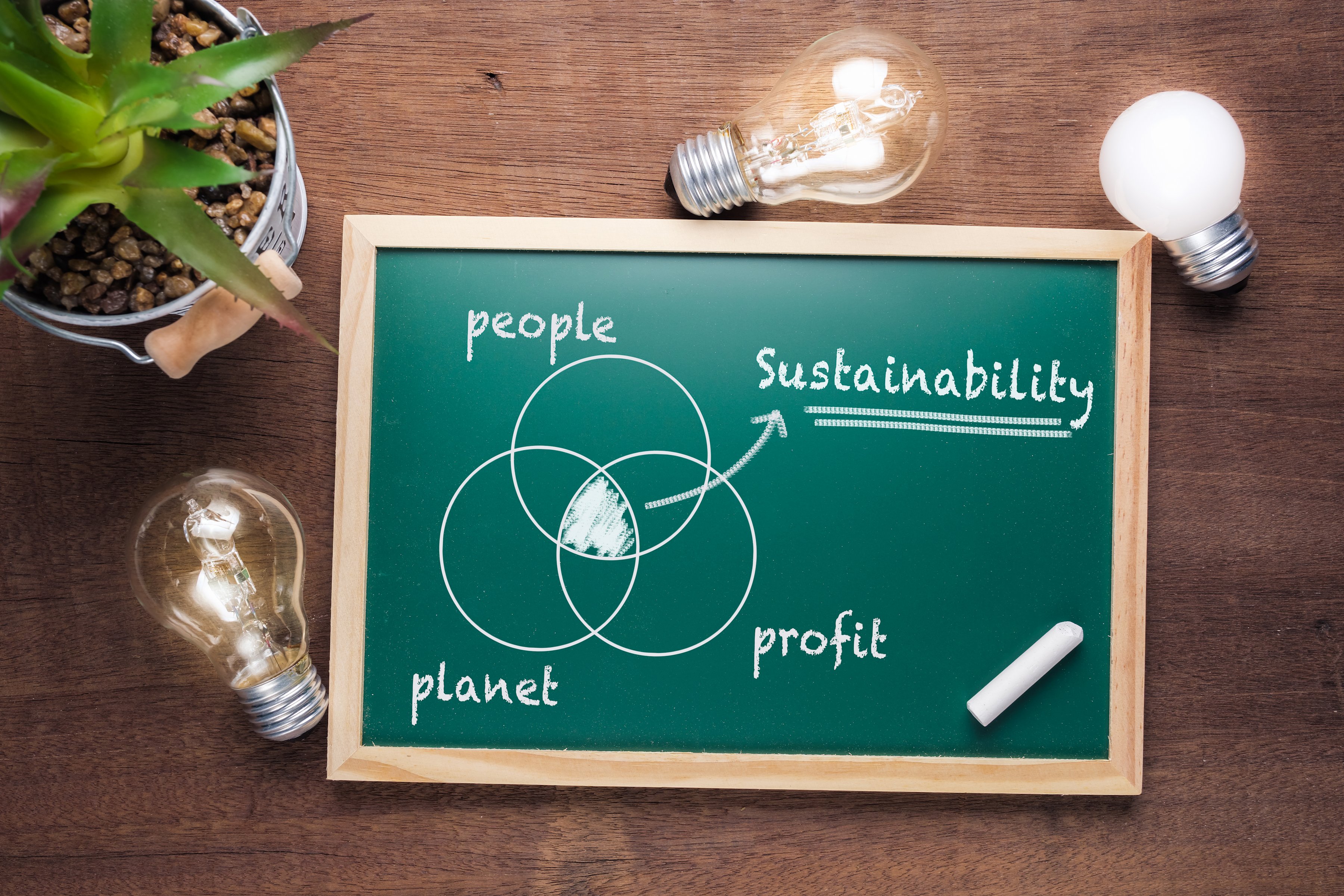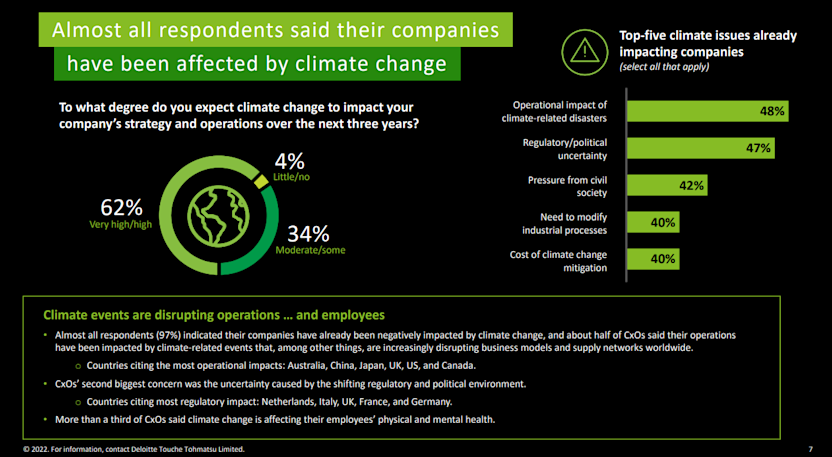
Deloitte CXO survey highlights sustainability's impact on business and why processes matter
C-level business leaders say 97% of their companies have been negatively impacted by climate change and half say supply chain and business models have been disrupted, according to a Deloitte survey.
Deloitte's 2022 CXO Sustainability Report: The Disconnect Between Ambition and Impact surveyed 2,083 CXOs across 21 countries. The upshot is that enterprises will need to form new processes and integrate sustainability into overall operations.
Although businesses are at different stages in climate strategies, Deloitte argued in its report that all companies are going to need to form plans that begin with smaller efficiency steps.
Deloitte's report echoes what has been said among Celonis customers, who have emphasized how smaller actions can help you reach larger sustainability goals. Consider:
CEOs say that supply chain processes need to account for sustainability.
Efficiency gains are incremental steps to sustainability goals. For instance, a customer that retools processes to deliver the same amount of goods in one truck load instead of the three before reduces carbon emissions and saves money.
Xerox has revamped processes to optimize field and customer service delivery. Using its CareAR software, Xerox has resolved issues remotely instead of making a trip. "If we can resolve an issue right there in our call center, we can prevent a truck from ever needing to roll,” said Steve Bandrowczak, Xerox's President and Chief Operations Officer.
Procurement and sourcing goods and services with sustainability as a goal matters. “There is no way a company can do a sustainability transformation without procurement,” says Alejandro Basterrechea, Head of Procurement Excellence at Zalando, Europe’s leading online fashion platform with more than 38 million active customers in over 17 European markets.

Among Deloitte's recommendations:
Embed climate considerations into every part of the business. Climate change "requires a fundamental business model transformation, with implications for procurement, talent, supply chain, product development, customer relationships and more. This necessitates new processes, as well as a shift in mindset throughout a company’s workforce, its suppliers, and its customers," said Deloitte.
Approach climate metrics like you would other operating metrics to assess performance, risk and opportunities.
Collaborate with suppliers, business partners, clients, governments and regulators to name a few.
Create processes for carbon footprint reporting.
Align short-term goals with long-term net-zero target dates.






